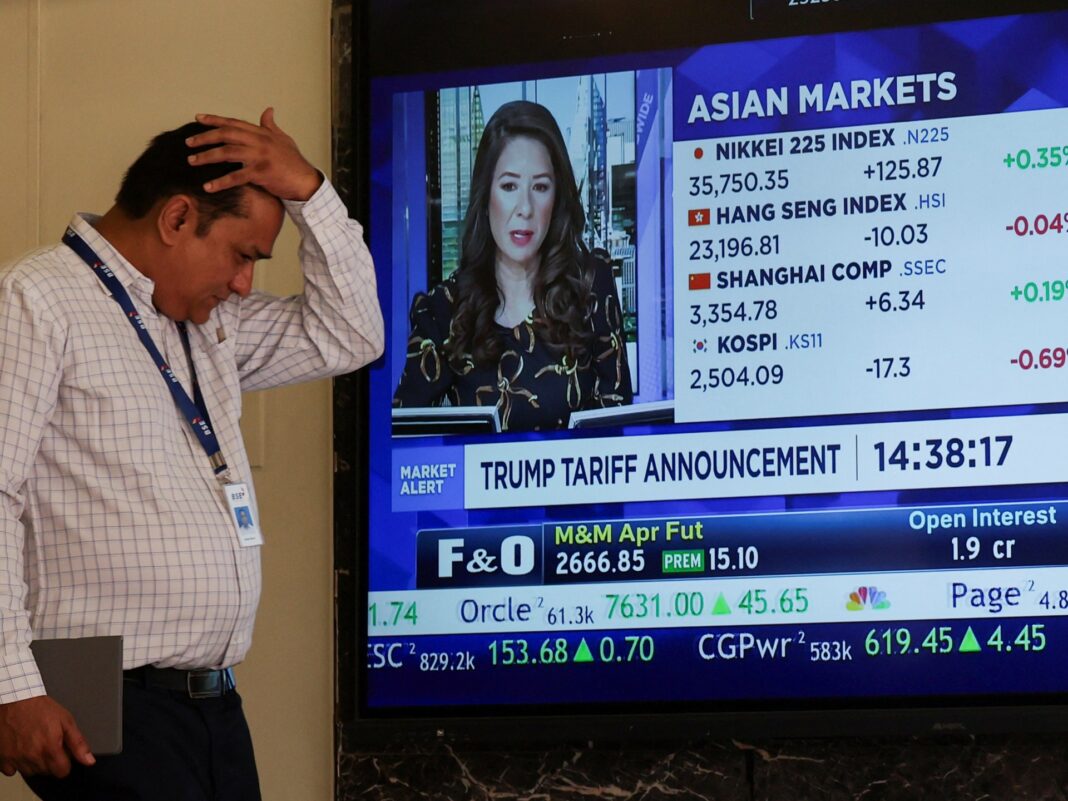The world watched with bated breath as President Trump unleashed a volley of tariffs, sending shockwaves through the global economy. “Nothing is off the table,” he declared, his words echoing with a chilling sense of unpredictability. From Brussels to Beijing, world leaders scrambled to assess the fallout, their reactions a mix of defiance, concern, and cautious negotiation. This is a story about the escalating trade war, the fragile state of the global economy, and the desperate search for a solution before the consequences become irreversible.
Canada Faces a Crossroads: “The Old Relationship Is Over”
Prime Minister Carney Vows a Shift in Trade Partnerships and Economic Reliance Away from the US
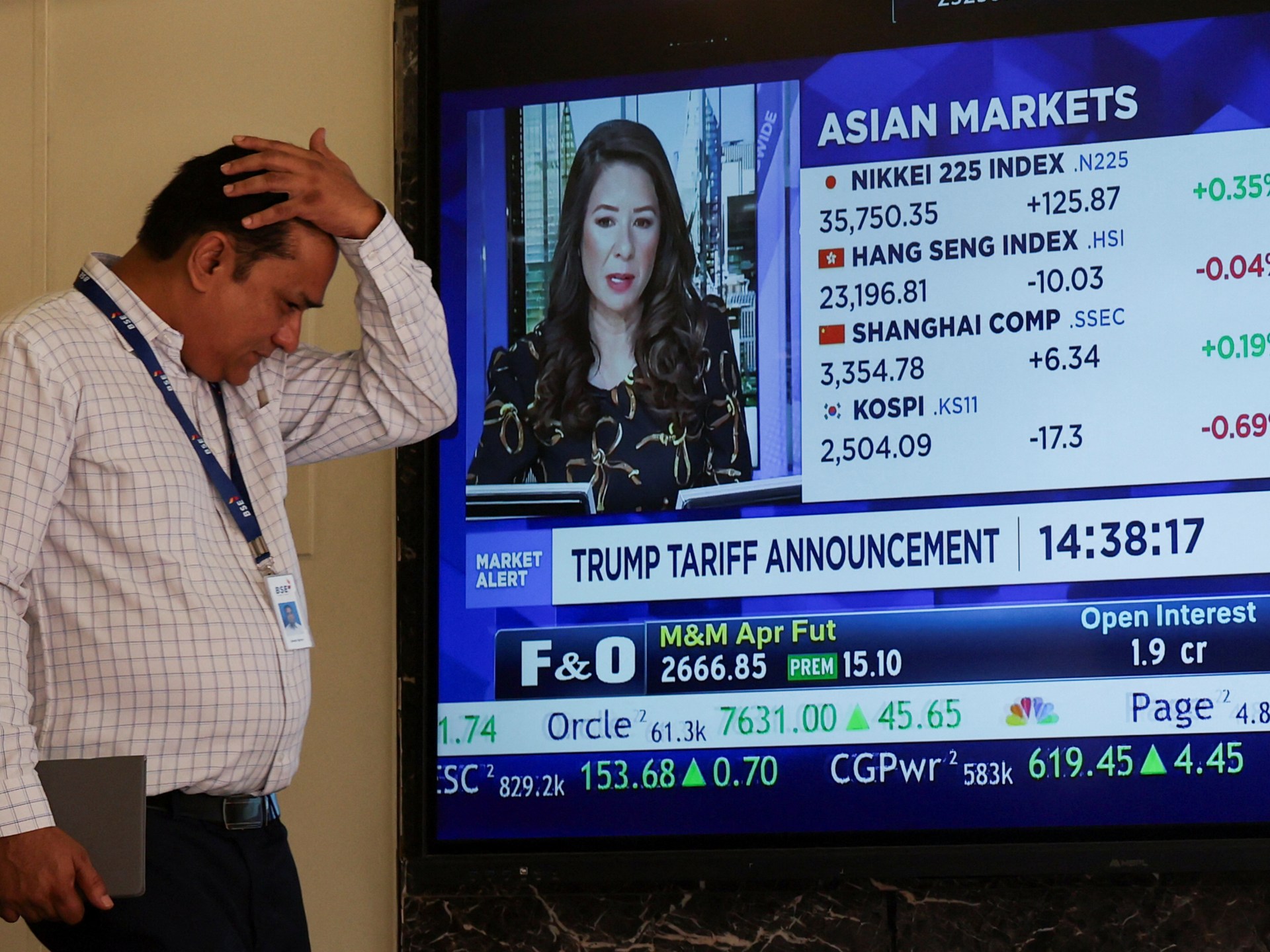
Canadian Prime Minister Mark Carney, in a blunt assessment of the evolving US-Canada relationship, stated that the “old relationship” characterized by deep economic integration and close security cooperation is over. He announced that Canada would need to significantly reduce its reliance on the United States, pivot its trade relationships elsewhere, and undertake actions previously deemed inconceivable at an accelerated pace. Carney’s declaration followed the Trump administration’s imposition of a 25 percent tariff on all foreign-made automobiles imported into the US, effective April 2nd.
The US move, which officials in both Canada and Mexico have condemned as a breach of the USMCA (United States-Mexico-Canada Agreement), has sent shockwaves through the North American auto industry. Carney’s remarks underscore the gravity of the situation, signaling a potential paradigm shift in the economic landscape of the continent.
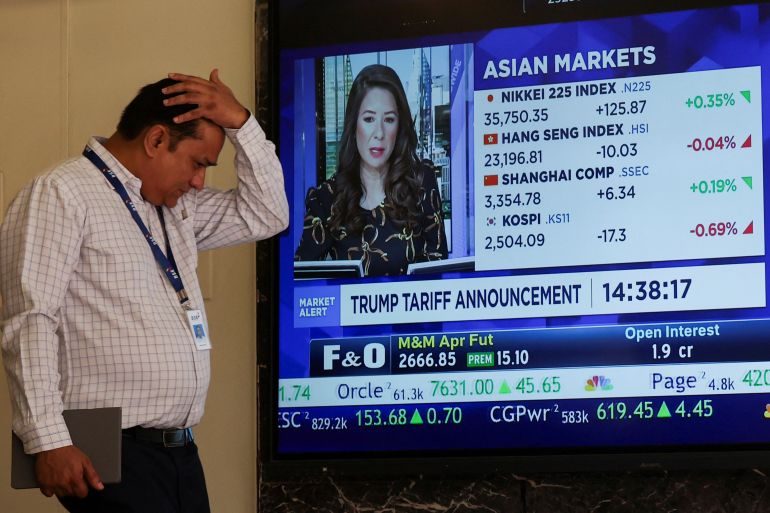
The Automotive Industry Braces for Disruption, with Potential Factory Closures and Job Losses
The Canadian automotive sector, deeply interwoven with its US counterpart, faces significant disruption as a result of the tariffs. Nearly two million automobiles manufactured in Canada are destined for US car companies. Furthermore, Canadian auto parts factories rely on US suppliers for approximately half their raw materials and components.
Flavio Volpe, president of the Canadian Automotive Parts Manufacturing Association, highlighted the intricate nature of the industry, stating that any actions by the White House targeting Canadians would directly impact the three largest US-based automotive enterprises. Volpe warned that the industry could grind to a halt on both sides of the border within a week, underscoring the potential for cascading economic fallout.
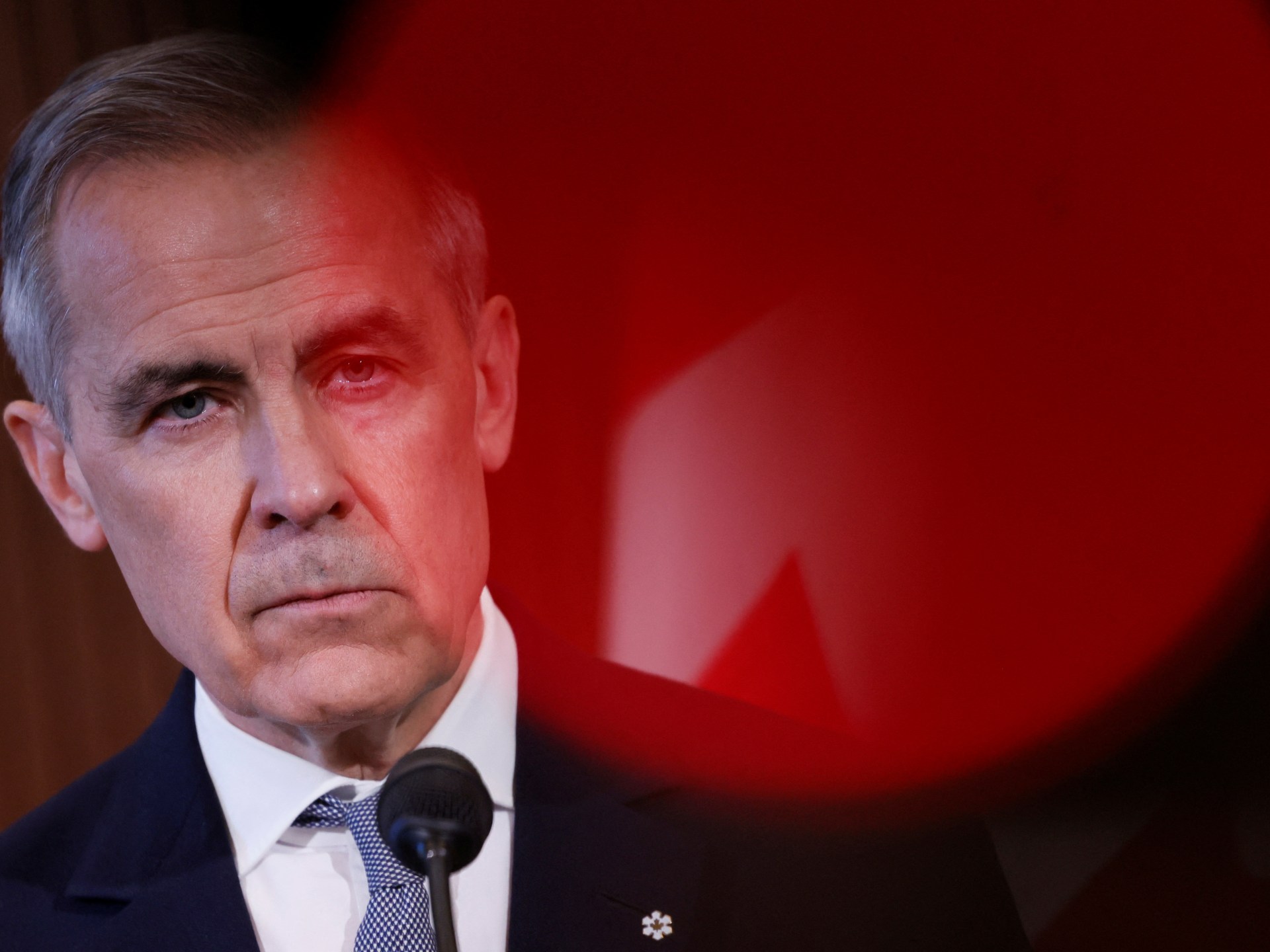
Analysis of the Implications for the USMCA and the Future of North American Trade
The Trump administration’s tariff action raises serious questions about the future of the USMCA, a trade pact ratified in 2019. The agreement aimed to modernize the previous NAFTA (North American Free Trade Agreement) and strengthen economic ties between the three countries. However, the imposition of unilateral tariffs contradicts the principles of free trade enshrined in the USMCA, potentially unraveling years of negotiations and cooperation.
Analysts warn that the tariffs could escalate into a full-blown trade war, further damaging the economies of all three countries. The USMCA, intended to foster economic integration, now faces a significant test, with the potential for long-term repercussions for North American trade and investment.
The Labor Divide: UAW Sees a Win, Critics Warn of Long-Term Consequences
The United Auto Workers Union Applauds the Tariffs, Emphasizing Job Protection for American Workers
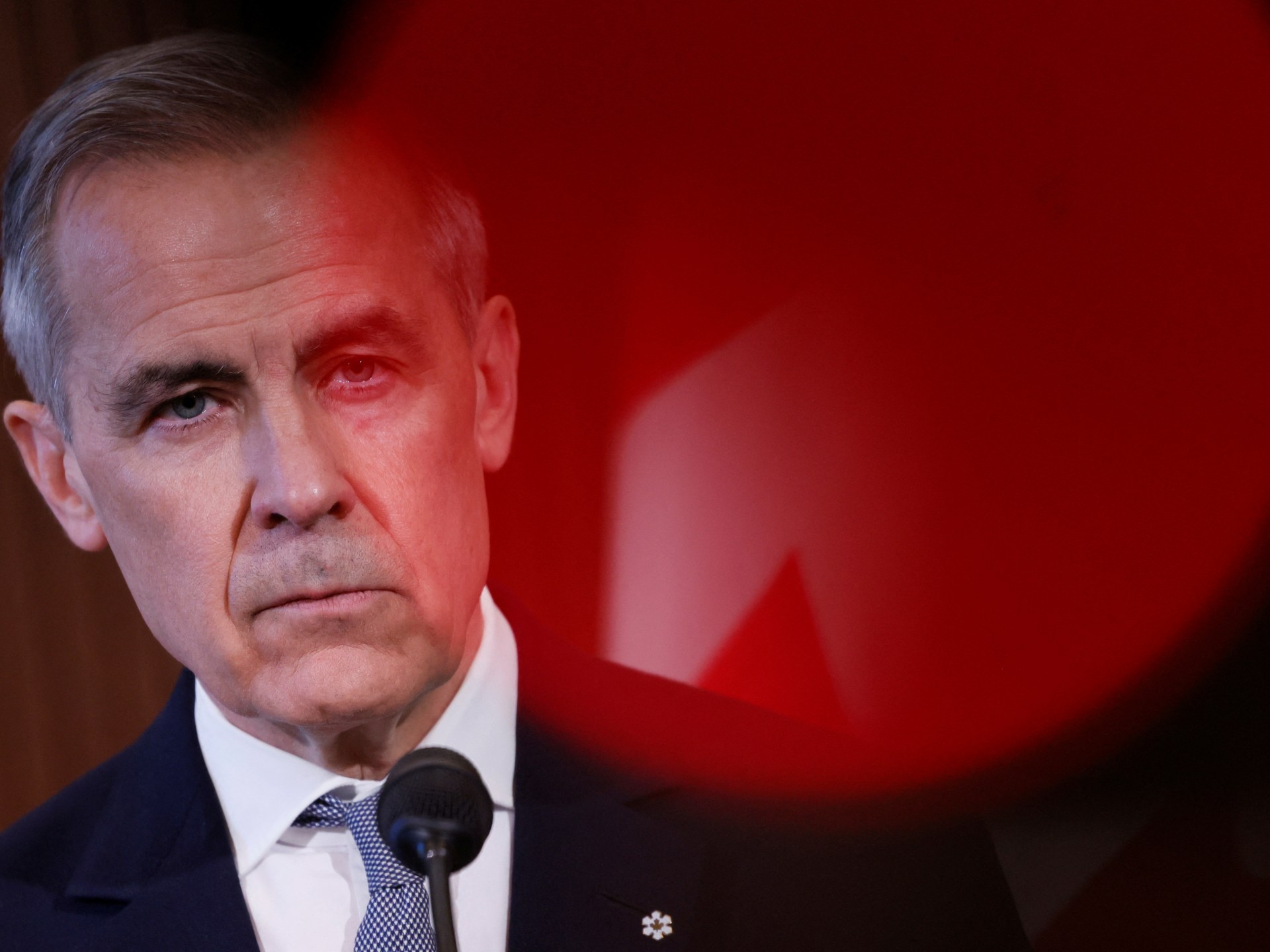
In contrast to the concerns raised by Canadian and Mexican officials, the United Auto Workers (UAW), a powerful labor union representing US auto workers, celebrated the Trump administration’s tariff announcement. UAW President Shawn Fain lauded the move as a victory for American workers, claiming that it would end the “free trade disaster” that had decimated working-class communities for decades.
Fain blamed free trade agreements for the exodus of US manufacturing jobs to countries with lower labor costs. He called on US carmakers to utilize the tariffs as an opportunity to bring back manufacturing jobs to the US, emphasizing the need for a revitalization of the domestic auto industry.

Experts Caution Against Unrealistic Expectations of Immediate Job Creation and Warn of Potential Industry Stagnation
However, critics cautioned against an overly optimistic view of the tariffs’ immediate impact on job creation. They argue that establishing new production lines in the US is a complex and time-consuming process, taking years to yield tangible results.
“Donald Trump says that this will help regenerate the car-building process in the United States,” explained Al Jazeera correspondent Alan Fisher. “But, of course, if anyone is going to build a plant, it is going to take two, three, maybe four years – beyond Trump’s time in office.”
Further concerns were raised about the potential for the tariffs to stifle innovation and growth in the US auto industry. Critics argue that protectionist measures could lead to a decline in competitiveness, ultimately harming American workers in the long run.
A Deeper Look at the Complex Dynamics Between Domestic Manufacturing, Global Supply Chains, and Trade Policy
The debate surrounding the tariffs highlights the intricate interplay between domestic manufacturing, global supply chains, and trade policy. While the UAW emphasizes the need to protect American jobs, critics warn that an overly protectionist approach could disrupt global trade flows and harm the broader economy. Finding the right balance between supporting domestic industries and fostering international cooperation remains a significant challenge.
The automobile industry, a key driver of economic growth and employment, serves as a microcosm of the broader global trade landscape. The decisions made by the Trump administration regarding tariffs have far-reaching consequences, not only for the US but also for its trading partners and the global economy as a whole.
Conclusion
The global community is bracing for a storm as Trump’s tariff rhetoric throws international trade relations into turmoil. From bewildered European counterparts to wary Asian allies, world leaders have reacted with a mix of apprehension and defiance. The article highlights the potential economic fallout, with concerns about retaliatory measures, market volatility, and stifled growth. While some leaders attempt to downplay the immediate impact, the underlying message is clear: the US’s unilateral trade actions threaten a fragile global order built on cooperation and mutual benefit. Beyond the immediate economic concerns, Trump’s “nothing is off the table” approach raises fundamental questions about the future of multilateralism. Will this aggressive stance pave the way for a more fractured global landscape, characterized by protectionism and escalating trade wars? Or will it ultimately force countries to re-evaluate their alliances and forge new partnerships based on shared economic interests? The coming months will undoubtedly be crucial in shaping the trajectory of global trade, and the world watches with bated breath, hoping for a resolution that prioritizes stability and prosperity for all. The fate of the global economy, and perhaps the very fabric of international cooperation, may well hang in the balance.

